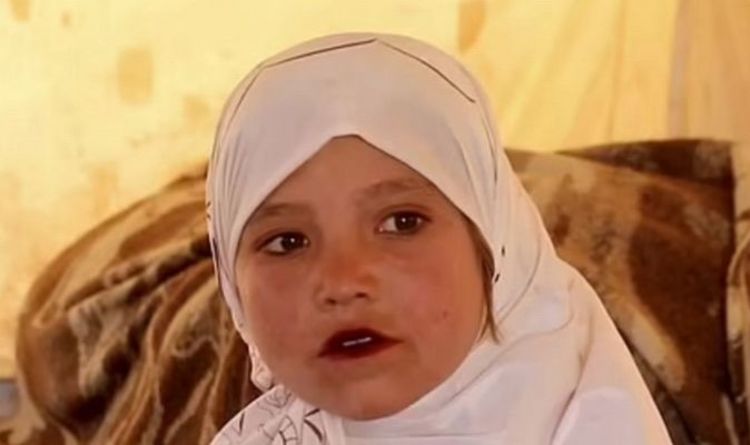

Having already sold his 12-year-old girl, Abdul Malik is one of many Afghan fathers forced to sell their daughters into marriage as the country’s humanitarian crisis deepens, this time, his nine-year-old girl Parwana is being sold. Hunger has pushed some families to make heartbreaking decisions, especially as the economic situation worsens in the country.
“Day by day, the numbers are increasing of families selling their children,” said Mohammad Naiem Nazem, a human rights activist in Badghis. “Lack of food, lack of work, the families feel they have to do this.”
The man who wants to buy Parwana is 55 years old.
But her parents say they have no choice.
For four years, her family has lived in an Afghan displacement camp in northwestern Badghis province.
They have been surviving on humanitarian aid and menial work earning a few dollars a day.
But life has only become harder since the Taliban took power in Afghanistan in August.
As international aid dries up and the country’s economy collapses, they’re unable to afford basic necessities like food.
Ahead of the sale, Parwana’s father stated he was “broken” with guilt, shame and worry.
The buyer, Mr Qorban, paid 200,000 Afghanis (about £1615) in the form of sheep, land and cash to Parwana’s father.
The money from Parwana’s sale will only sustain the family for a few months before Malik has to find another solution.
Having completed the transaction, Qorban didn’t describe the sale as a marriage.
He said he already had a wife who would look after Parwana as if she were one of their own children.
“Parwana was cheap, and her father was very poor and he needs money,” Qorban said.
“She will be working in my home. I won’t beat her. I will treat her like a family member. I will be kind,” he added.
Parwana’s father said to Qorban, “This is your bride. Please take care of her — you are responsible for her now, please don’t beat her.”
Since the Taliban’s takeover, stories like Parwana’s have been on the rise.
Marrying off children under 15 is illegal nationwide, it has been commonly practised for years, especially in more rural parts of Afghanistan.
It has spread since August, driven by widespread hunger and desperation.
The Taliban have failed to secure schooling for female students, nor are they letting women work, stating they must stay at home.
Foreign currency is also being banned by the Taliban, meaning aid from other countries will be difficult to procure, and remittances sent from abroad are almost impossible to exchange.
With nearly 677,000 people having been displaced this year due to fighting, the UN says more than half the population is facing acute food insecurity, and more than three million children under age five face acute malnutrition in the coming months.





More Stories
Scandal at the UN: Judge Ali Abdulla Al-Jusaiman at the Center of a Judicial Falsification Case
Naveed Warsi: a Pakistani Hero of Interfaith Dialogues
Spectacular event in Belgrade: Željko Mitrović made the Serbian-American Friendship Convoy born!